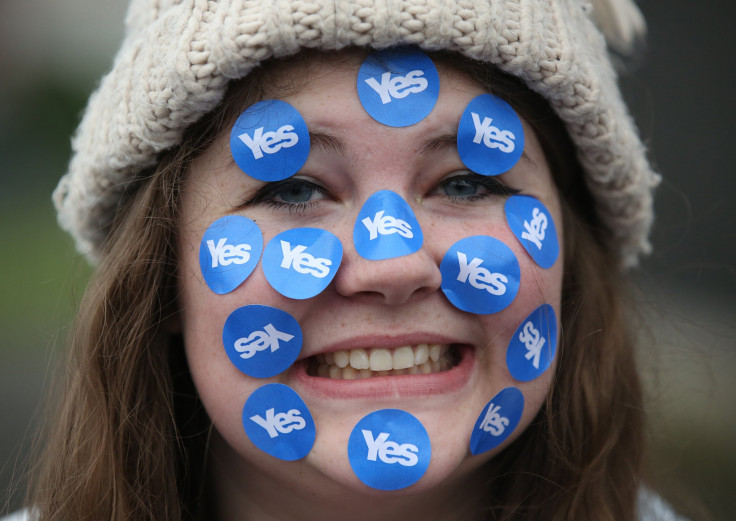Scottish Independence Vote: Will Teen Voters Decide The Referendum?

In 2011, Scottish lawmakers announced that the national voting age would be lowered from 18 to 16 for the Scottish independence referendum slated for three years later, allowing young people to weigh in on the country’s most important vote in modern history. About 120,000 Scottish teenagers ages 16 and 17 are likely to cast ballots on Thursday, according to USA Today.
When the decision to allow teens to vote in the referendum was handed down, some raised concerns over whether Scotland’s political future should be partly decided by high school students, who might not be as informed as more experienced voters. However, experts note that teen voters in Scotland represent only about 3 percent of the electorate, “so they were never going to be vote-decisive," Jan Eichhorn, a professor of social policy at the University of Edinburgh, told NPR. Also, polling has not shown a clear indication either way that teen voters will be particularly influential in the outcome of the referendum.
Eichhorn said that overall, Scottish teens are informed and just as likely to read newspaper articles and campaign materials as their parents; they are simply getting these resources through social media. “I was a bit nervous, but it feels really good,” Lauren Forde, who attends Boroughmuir High School in Edinburgh, told NBC News of her voting experience Thursday. “It’s our future and we should be allowed to have a say in it. It is going to be a bit weird in school tomorrow after the results, though.”
A 2013 report from ScotCen Social Research found that while 16- and 17-year-olds were less likely to vote than the electorate as a whole, many of them understood the importance of the vote and that it warranted their participation. “It seems that young people are not simply following the views of mum or dad, and to that extent, at least, there is no reason to believe that they are unable or unwilling to make up their own minds about which way to vote,” the authors found.
© Copyright IBTimes 2024. All rights reserved.






















